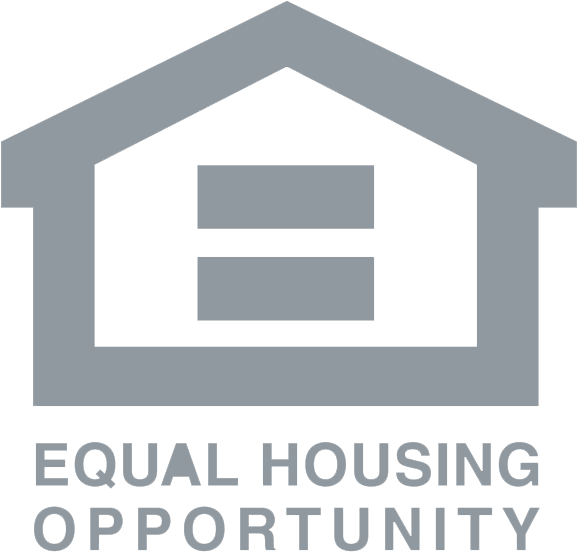
CONVENTIONAL LOANS
Conventional loans are one of the most popular mortgage options for homebuyers. Unlike FHA, VA, or USDA loans, conventional loans are not insured or backed by the government. They are typically offered by private lenders such as banks, credit unions, and mortgage companies. These loans often require a larger down payment, but they offer greater flexibility and fewer restrictions, especially for borrowers with good credit and stable income. Whether you’re buying your first home, upgrading, or refinancing, conventional loans provide various options tailored to your needs.
Conventional loans come with several advantages:
- Flexible Terms: Borrowers have access to a wide range of loan terms, and those with good credit can often secure lower interest rates compared to government-backed loans.
- Higher Loan Amounts: Conventional loans generally allow for higher borrowing limits, making them a great option for financing higher-priced homes.
- No Government Insurance: Since conventional loans are not backed by the government, borrowers avoid the extra costs associated with government-required mortgage insurance, such as those imposed by FHA loans.
Conventional loans are often perceived as requiring larger down payments, but in reality, it’s possible to qualify for one with as little as 3% down. However, it’s important to note that a smaller down payment may require private mortgage insurance (PMI), which will add to your monthly payments. Depending on your financial profile, you may be able to secure a conventional loan with a down payment ranging from 3% to 5%.
- 3% Down Payment: Available for qualified borrowers with strong credit and income stability.
- Private Mortgage Insurance (PMI): Required for down payments less than 20%. PMI can be canceled once your loan-to-value (LTV) ratio reaches 80%, which can lower your monthly costs.
Qualifying for a conventional loan generally requires meeting certain criteria, including:
- Good Credit: A credit score of 620 or higher is typically required. Higher credit scores may result in better interest rates and more favorable loan terms.
- Stable Employment: A steady employment history and consistent income are crucial factors for loan approval.
- Manageable Debt: Your debt-to-income (DTI) ratio should fall within acceptable limits, usually below 45%, though this can vary by lender.
- Financial Documentation: Lenders will assess your income, assets, and the appraised value of the property as part of their evaluation process.
Lenders may have varying requirements, so it’s essential to work with a mortgage professional to assess your eligibility and find the best options.
While conventional loans offer competitive interest rates, flexible terms, and the ability to finance a wide range of property types, they are often compared to government-backed loans, such as FHA, VA, or USDA loans. Here’s a comparison:
- Competitive Interest Rates: Conventional loans typically offer lower interest rates for borrowers with strong credit.
- Higher Loan Limits: Conventional loans generally have higher borrowing limits compared to FHA loans, which can be beneficial for purchasing more expensive homes or properties in high-cost areas.
- No Upfront Mortgage Insurance: Unlike FHA loans, conventional loans do not require upfront mortgage insurance premiums, which can save you on initial costs.
- Mortgage Insurance Flexibility: With conventional loans, PMI can be canceled once your LTV reaches 80%, leading to long-term savings. FHA loans, on the other hand, typically require mortgage insurance for the life of the loan.
- Property Flexibility: Conventional loans often have more lenient property standards compared to FHA loans, which have stricter requirements that may limit your options if you’re considering a home that needs repairs or renovations.
When obtaining a conventional loan, closing costs can be a concern. However, there are strategies to help manage these expenses:
- Seller Concessions: You can negotiate with the seller to cover some or all of your closing costs, depending on the real estate market and the terms of your purchase contract.
- Lender Assistance: In some cases, you may choose to accept a slightly higher interest rate in exchange for the lender covering your closing costs, a practice known as “buying up” your rate.
- Gift Funds: Conventional loans often allow for gift money from family members, friends, or employers to help cover down payments and closing costs.
- Down Payment Assistance Programs: Explore grants or forgivable loans through down payment assistance programs available at the local, state, or federal level. A mortgage professional can guide you in finding eligible programs that can help reduce your out-of-pocket expenses.
- Higher Loan Limits: Conventional loans generally offer higher loan limits than FHA loans, making them ideal for financing more expensive homes or properties in high-cost areas.
- No Upfront Mortgage Insurance: Conventional loans do not require the upfront mortgage insurance premiums that FHA loans do, helping you save on initial costs.
- Flexible Mortgage Insurance Options: With a conventional loan, you can cancel PMI once your loan-to-value ratio reaches 80%. This can lead to significant long-term savings compared to FHA loans, which typically require mortgage insurance for the life of the loan.
- More Lenient Property Standards: Conventional loans often have more flexibility regarding property conditions and appraisals, while FHA loans impose stricter standards. This flexibility can make conventional loans a better option for those purchasing homes that need repairs or renovations.
Ultimately, the decision between a conventional loan and an FHA loan depends on your specific financial situation and homeownership goals. Consulting with a mortgage professional will help you assess both options and determine which is the best fit for your needs.
Joining Over 800,000 Students Enjoying Avada Education now
Become Part of Avada University to Further Your Career.

CONVENTIONAL LOANS
Conventional loans are one of the most popular mortgage options for homebuyers. Unlike FHA, VA, or USDA loans, conventional loans are not insured or backed by the government. They are typically offered by private lenders such as banks, credit unions, and mortgage companies. These loans often require a larger down payment, but they offer greater flexibility and fewer restrictions, especially for borrowers with good credit and stable income. Whether you’re buying your first home, upgrading, or refinancing, conventional loans provide various options tailored to your needs.
Conventional loans come with several advantages:
- Flexible Terms: Borrowers have access to a wide range of loan terms, and those with good credit can often secure lower interest rates compared to government-backed loans.
- Higher Loan Amounts: Conventional loans generally allow for higher borrowing limits, making them a great option for financing higher-priced homes.
- No Government Insurance: Since conventional loans are not backed by the government, borrowers avoid the extra costs associated with government-required mortgage insurance, such as those imposed by FHA loans.
Conventional loans are often perceived as requiring larger down payments, but in reality, it’s possible to qualify for one with as little as 3% down. However, it’s important to note that a smaller down payment may require private mortgage insurance (PMI), which will add to your monthly payments. Depending on your financial profile, you may be able to secure a conventional loan with a down payment ranging from 3% to 5%.
- 3% Down Payment: Available for qualified borrowers with strong credit and income stability.
- Private Mortgage Insurance (PMI): Required for down payments less than 20%. PMI can be canceled once your loan-to-value (LTV) ratio reaches 80%, which can lower your monthly costs.
Qualifying for a conventional loan generally requires meeting certain criteria, including:
- Good Credit: A credit score of 620 or higher is typically required. Higher credit scores may result in better interest rates and more favorable loan terms.
- Stable Employment: A steady employment history and consistent income are crucial factors for loan approval.
- Manageable Debt: Your debt-to-income (DTI) ratio should fall within acceptable limits, usually below 45%, though this can vary by lender.
- Financial Documentation: Lenders will assess your income, assets, and the appraised value of the property as part of their evaluation process.
Lenders may have varying requirements, so it’s essential to work with a mortgage professional to assess your eligibility and find the best options.
While conventional loans offer competitive interest rates, flexible terms, and the ability to finance a wide range of property types, they are often compared to government-backed loans, such as FHA, VA, or USDA loans. Here’s a comparison:
- Competitive Interest Rates: Conventional loans typically offer lower interest rates for borrowers with strong credit.
- Higher Loan Limits: Conventional loans generally have higher borrowing limits compared to FHA loans, which can be beneficial for purchasing more expensive homes or properties in high-cost areas.
- No Upfront Mortgage Insurance: Unlike FHA loans, conventional loans do not require upfront mortgage insurance premiums, which can save you on initial costs.
- Mortgage Insurance Flexibility: With conventional loans, PMI can be canceled once your LTV reaches 80%, leading to long-term savings. FHA loans, on the other hand, typically require mortgage insurance for the life of the loan.
- Property Flexibility: Conventional loans often have more lenient property standards compared to FHA loans, which have stricter requirements that may limit your options if you’re considering a home that needs repairs or renovations.
When obtaining a conventional loan, closing costs can be a concern. However, there are strategies to help manage these expenses:
- Seller Concessions: You can negotiate with the seller to cover some or all of your closing costs, depending on the real estate market and the terms of your purchase contract.
- Lender Assistance: In some cases, you may choose to accept a slightly higher interest rate in exchange for the lender covering your closing costs, a practice known as “buying up” your rate.
- Gift Funds: Conventional loans often allow for gift money from family members, friends, or employers to help cover down payments and closing costs.
- Down Payment Assistance Programs: Explore grants or forgivable loans through down payment assistance programs available at the local, state, or federal level. A mortgage professional can guide you in finding eligible programs that can help reduce your out-of-pocket expenses.
- Higher Loan Limits: Conventional loans generally offer higher loan limits than FHA loans, making them ideal for financing more expensive homes or properties in high-cost areas.
- No Upfront Mortgage Insurance: Conventional loans do not require the upfront mortgage insurance premiums that FHA loans do, helping you save on initial costs.
- Flexible Mortgage Insurance Options: With a conventional loan, you can cancel PMI once your loan-to-value ratio reaches 80%. This can lead to significant long-term savings compared to FHA loans, which typically require mortgage insurance for the life of the loan.
- More Lenient Property Standards: Conventional loans often have more flexibility regarding property conditions and appraisals, while FHA loans impose stricter standards. This flexibility can make conventional loans a better option for those purchasing homes that need repairs or renovations.
Ultimately, the decision between a conventional loan and an FHA loan depends on your specific financial situation and homeownership goals. Consulting with a mortgage professional will help you assess both options and determine which is the best fit for your needs.
Joining Over 800,000 Students Enjoying Avada Education now
Become Part of Avada University to Further Your Career.
-
First-Time Homebuyer Guide to MortgagesMarch 15th, 2016
-
The Ultimate Guide to Home Mortgage RefinancingOctober 1st, 2024
-
The Loan ProcessOctober 18th, 2024
-
First-Time Homebuyer Guide to MortgagesMarch 15th, 2016
-
The Ultimate Guide to Home Mortgage RefinancingOctober 1st, 2024
-
The Loan ProcessOctober 18th, 2024
- No comments have been published yet.






